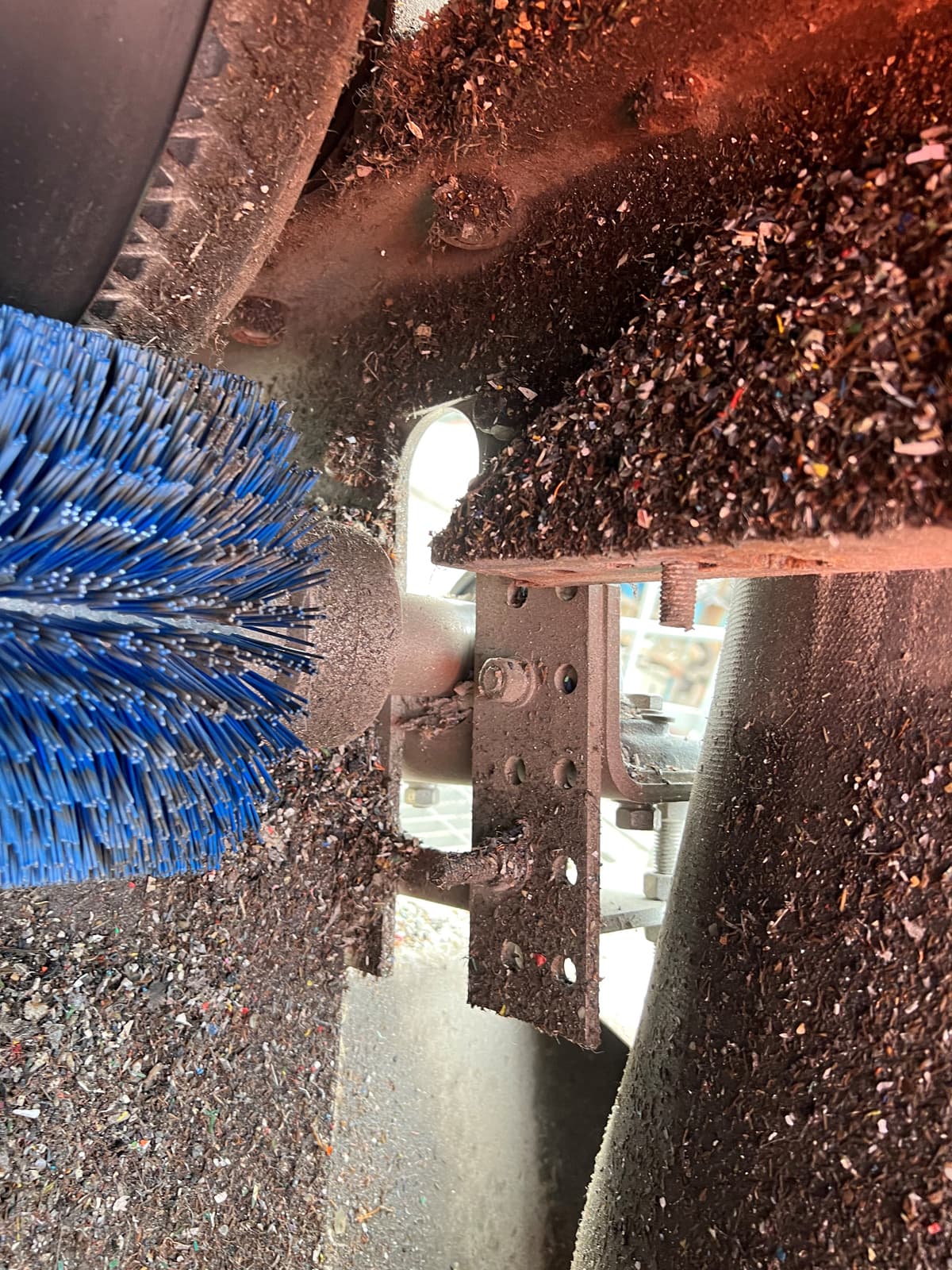Belt cleaners and scrapers for bulk handling. Conveyor belts are essential to many industrial operations, transporting goods and materials across large distances with minimal effort.
However, these systems can quickly become inefficient and dangerous if improperly cleaned and maintained. This is where conveyor belt cleaners and scrapers come in – an effective way to prevent material build-up and extend the lifespan of your conveyor belt.
What are Conveyor Belt Cleaners and Scrapers?
Belt cleaners and scrapers bulk handling Conveyor belt cleaners are devices used to remove material build-up on conveyor belts. These can be scrapers or blades made from various materials such as rubber, urethane, or tungsten carbide. The cleaners work by scraping the conveyor belt surface and eliminating any excess material or debris that could cause issues.
Types of Conveyor Belt Cleaners and Scrapers
There are several types of conveyor belt cleaners and scrapers, each designed to suit specific applications and types of material. Here are some of the most common types of cleaners and scrapers:
Primary belt cleaners
Also known as pre-cleaners are the first line of defence against material build-up. These are typically made from brush, rubber, or polyurethane blades.
Secondary belt cleaners
These cleaners are underneath the conveyor belt, acting as a secondary line of defence. These can be used to remove any remaining material build-up the primary cleaners may have missed.
Belt plows
These belt scrapers deflect any material or debris off the conveyor belt and onto a spillover chute. Belt plows are often used in bulk material handling plants to prevent material build-up and blockages.
Tungsten carbide cleaners
These belt cleaners use tungsten carbide blades to remove even the most resilient materials from conveyor belts. These are typically used in heavy-duty applications where other cleaners and scrapers may not be effective enough.
Benefits of Using Conveyor Belt cleaners and Scrapers for Bulk Handling
By installing conveyor belt cleaners and scrapers at your plant, you can experience several benefits, including:
Reduced maintenance costs – eliminating material build-up and debris can reduce the likelihood of belt damage, increasing your conveyor belt’s lifespan and reducing maintenance costs.
Improved safety – removing debris from conveyor belts can prevent accidents, reducing workplace injury risk.
Increased efficiency – by removing material build-up, your conveyor belt can operate more efficiently and reliably, leading to increased throughput and improved production rates.
Conveyor belt cleaners and scrapers are crucial for any bulk material handling facility. By removing material build-up and debris, these devices can improve safety, increase efficiency, and reduce maintenance costs. When selecting a conveyor belt cleaner or scraper, it’s essential to consider your application’s specific needs and the type of material being transported. With the right equipment, you can ensure the smooth operation of your conveyor belt and a safe, productive workplace.
—
Belt scraper FAQs
What is a belt scraper used for?
Belt scrapers are essential components of conveyor systems used in industries ranging from mining and construction to food processing and agriculture. A belt scraper, also known as a conveyor scraper or cleaning blade, is a device attached to the head pulley or tail pulley of a conveyor belt to remove any residual material left on the belt after it has unloaded its cargo. The belt scraper consists of a horizontal metal or polyurethane blade positioned at a specific angle to make contact with the belt surface. As the belt moves, the blade scrapes along the surface, removing any residual material before it can build up and cause problems such as belt slip, tracking issues, or even belt breakage.
How does a belt scraper work?
A belt scraper, also known as a conveyor scraper or cleaning blade, works by removing any residual material left on the conveyor belt after it has unloaded its cargo. The belt scraper is positioned at a specific angle to make contact with the belt surface, and as the belt moves, the scraper blade scrapes along the surface.
The scraper blade is typically made of metal or polyurethane and is mounted onto a spring-loaded arm. The arm applies pressure to the blade, ensuring it always remains in contact with the belt surface. The blade is angled in a way that is perpendicular to the direction of the belt, allowing it to maximise contact with the belt surface and effectively remove any residual material.
Belt scrapers are essential components of conveyor systems used in industries ranging from mining and construction to food processing and agriculture, ensuring efficient and safe operation of the conveyors. As the scraper blade moves along the belt surface, it collects residual material, which falls into a discharge chute or onto a collection conveyor. This process prevents the material from building up, causing problems such as belt slip, tracking issues, or even belt breakage.
How does a belt cleaner work?
A belt cleaner, also known as a conveyor belt cleaner, removes any residual material left on the conveyor belt after it has unloaded its cargo. This residual material can come in fine particles, dust, or larger debris like rocks or metal pieces.
Belt cleaners can come in various designs and styles, but most work using a scraper blade or a brush. The scraper blade is typically made with metal or polyurethane and is mounted onto a spring-loaded arm. The brush is usually made from stiff bristles, which help to sweep away any residual material.
As the conveyor belt moves, the scraper blade or brush comes into contact with the belt’s surface, working to clean and remove any residual material. The scraper blade is positioned at a specific angle to ensure that it is effective in removing the material from the belt. The brush is usually mounted beneath the belt, and as the belt passes over it, the bristles sweep across the surface of the belt, pushing away any residual material.
Most belt cleaner systems include a mechanism for disposing of the collected material, typically into a receptacle or chute. This process ensures that the remaining material doesn’t contaminate any other areas or parts of the conveyor system.
In summary, the conveyor belt cleaner removes residual material from the belt’s surface using either a scraper blade or a brush. This process prevents the material from building up, leading to potential tracking and performance issues. Belt cleaners are essential components of conveyor systems used in industries such as mining, quarrying, manufacturing, and food processing.
What industries use conveyor systems with belt cleaners?
Conveyor systems with belt cleaners are used in a wide range of industries where materials and goods need to be transported efficiently and safely. Here are some of the primary industries that rely on conveyor systems with belt cleaners:
Materials recycling facilities (MRFs)
Designed to separate materials for recycling. The conveyor belt plays a significant role in the MRF’s operations, moving large quantities of materials between the equipment and throughout the facility. Over time, the conveyor belts can become soiled with debris with materials gathered in the belly pans, which can affect the accuracy of the sorting process and cause damage to the machinery. Conveyor belt cleaners help to ensure that the conveyor belts remain clean and free from debris, enabling the conveyor systems to continue operating efficiently. A range of conveyor belt cleaners is available, from simple belt scrapers to sophisticated systems that use motorised brushes, sprays, or air to clean the belts. Using conveyor belt cleaners is an effective way to keep the MRF running smoothly and reduce downtime, ultimately saving money and boosting productivity.
Incinerator bottom ash (IBA) processing plants
Critical to running operations smoothly. IBA processing plants are designed to extract metals from ash residue generated during the incineration of municipal waste. During the process, conveyor belts move large quantities of ash through the plant. Over time, ash can build up on the belts and belly pans, which can cause them to slow down, slip, or even damage the machinery.
Mining:
Mining companies use conveyor systems to transport raw materials from excavation sites to processing plants. Belt cleaners are essential in this industry, as the materials transported can be abrasive and cause significant damage to the belts if not properly cleaned.
Power Generation:
Power plants use conveyor systems to transport coal and other raw materials needed for energy production. Belt cleaners are critical to this industry, as materials can accumulate on the belt and potentially cause equipment failure or even fires.
Manufacturing: Manufacturing plants transport raw materials and finished products around their facilities using conveyor systems. Belt cleaners help to ensure that the belts are running smoothly and efficiently, preventing jams and reducing downtime.
Food Processing:
Food processing plants use conveyor systems to transport fruits, vegetables, meats, grains, and other ingredients through their operations. Belt cleaners are vital in this industry to ensure that the conveyor belts are free from any residual materials that could contaminate the food sources.
In summary, many industries use conveyor systems with belt cleaners, including mining, recycling, power generation, manufacturing, food processing, warehousing and distribution. These industries rely on conveyor systems to transport materials and goods efficiently and safely, and belt cleaners help keep those systems running smoothly.
Read our latest case studies on belt cleaners and scrapers bulk handling:
Motorised Brush Cleaner for Conveyor Belts Case Studies
Keeping chevron and cleated conveyor belts clean at a Material Recovery Facility.
PDF Download
Reducing conveyor stoppages with automatic motorised brush cleaning technology at ERF/MRF Facility.
Preventing material carryback with varying moisture contents to increase uptime at IBA Plant.
All our products are Made in Britain






